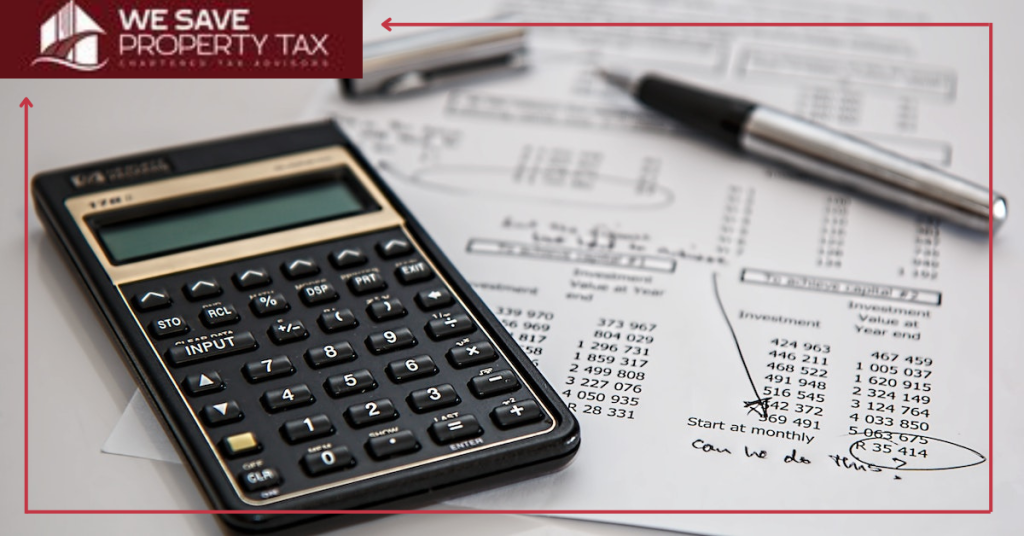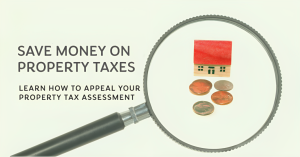Landlord Tax Claims in the UK
As a landlord, you know that your rental property is not just an investment but also a source of income. But did you know that many expenses associated with being a landlord can be claimed as deductions on your taxes? Maximizing your landlord tax claims means more money in your pocket and less stress come tax season.
In this blog post, we’ll dive into what expenses landlords can claim, how to calculate tax deductions, what records to keep, and how to file your landlord tax claims effectively. So let’s get started!
What Are the Expenses for Landlord Tax Claims?
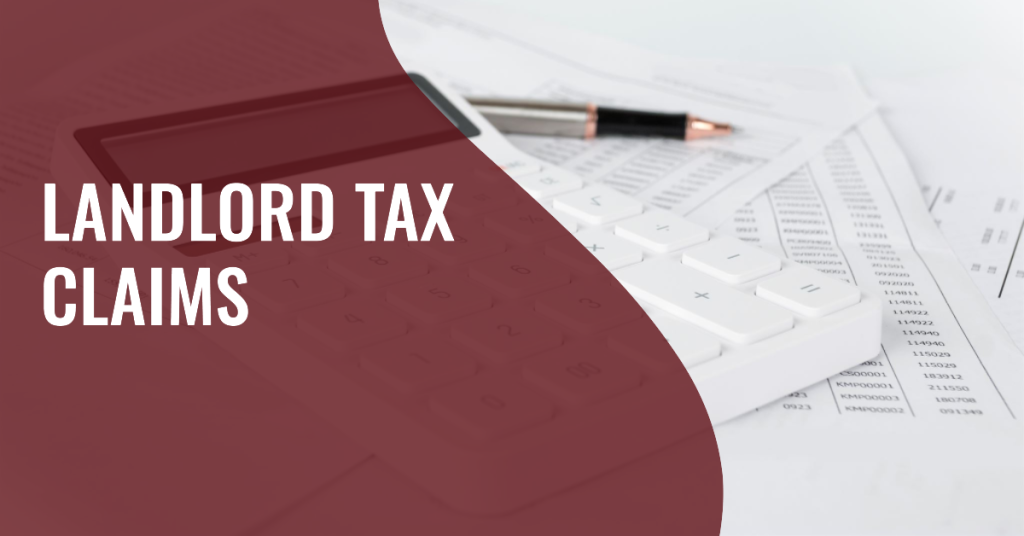
As a landlord, you can claim tax deductions on certain expenses incurred while letting out a property. These expenses include:
Mortgage interest: You can claim tax relief on the interest you pay on a home loan used to purchase or work on an investment property.
Repairs and maintenance: You can claim tax deductions for fixes and maintenance costs, like work of art and designing, fixing a flawed rooftop, or fixing a messed up window.
Letting agent fees: If you use a letting agent to find tenants, you can claim tax deductions on their fees.
Insurance: You can claim tax relief on the cost of insuring your rental property.
Advertising: If you advertise your rental property, you can claim tax deductions for the cost of advertising.
Utility bills: Assuming you take care of the service bills for your rental property, like gas, power, and water, you can claim tax relief on these expenses.
Council tax: You can claim tax deductions for the cost of council tax if you pay it for your rental property.
Note that not all costs qualify for tax deductions. The standards for burden claims by landlords can be complex. We recommend consulting a tax professional or accountant to ensure to guarantee that you are asserting all permissible costs accurately.
Types of Tax Deductions You Can Claim
Firstly, make a list of all the expenses related to your rental property. This could include mortgage interest payments, repairs and maintenance costs, insurance premiums, and property management fees.
Next, divide these expenses into two categories:
You can immediately deduct expenses like repairs and maintenance in the year they’re incurred. However, capital improvements, such as installing new flooring or heating systems, must be depreciated over several years.
How to Calculate Tax Deductions
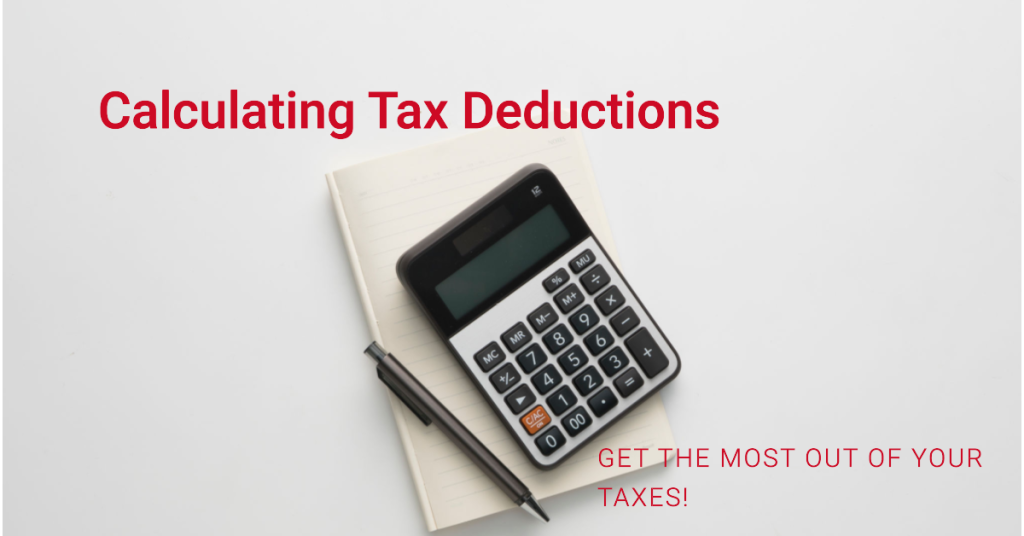
Calculating your tax deductions as a landlord can be tricky, but it’s essential to ensure that you’re not overpaying on taxes. To calculate your tax deductions accurately, you’ll need to know what expenses can be claimed.
Keeping accurate records of all your rental-related expenses throughout the year and using this method to calculate your tax deductions properly will help reduce taxable income while maximizing savings!
Records Do You Need to Keep?
As a landlord, keeping accurate and organized records is crucial when it comes to maximizing your tax claims. The more detailed your record-keeping system, the easier it will be for you to calculate your deductions accurately come tax time.
Income records:
Firstly, make sure to keep a record of all income received from rental properties. This includes rent payments as well as any additional income from things like laundry facilities or parking spaces.
Expense records:
Next, keep track of all expenses related to your rental properties. This includes mortgage interest payments, property taxes, insurance premiums, repairs and maintenance costs, utilities paid by the landlord, and other necessary expenses incurred in the course of renting out your property.
These records must be kept in an organized manner for easy reference later on. Consider using accounting software or spreadsheets to help manage this information effectively.
Business records:
In addition to financial records, landlords should also keep copies of lease agreements and any correspondence with tenants regarding their tenancy. These documents can provide valuable evidence if disputes arise between landlords and tenants in the future.
Staying organized
Maintaining thorough records is essential when it comes to claiming deductions on your rental property taxes. Staying organized throughout the year and keeping accurate documentation of all transactions relating to your property investments will ensure that you have everything you need come tax time.
How to File Your Landlord Tax Claims
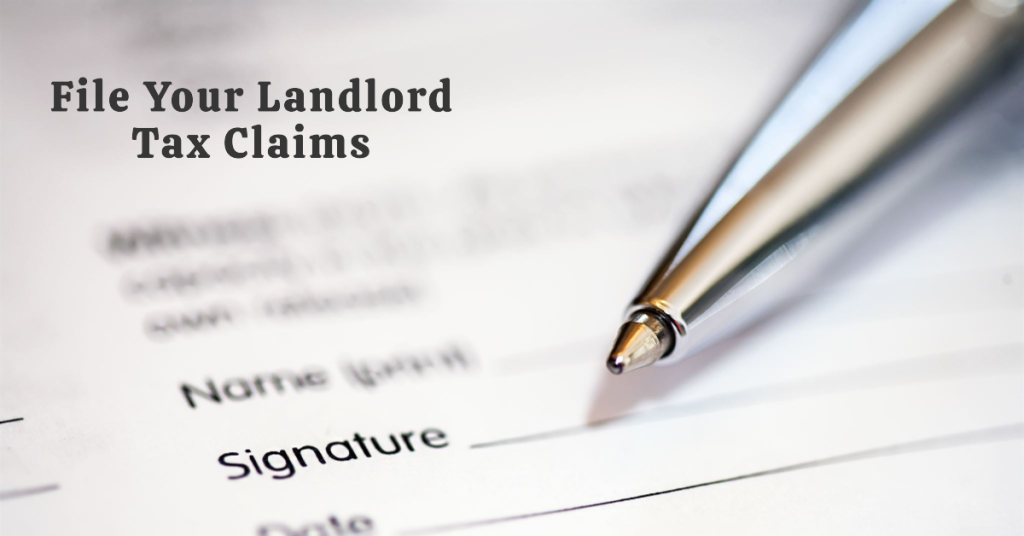
Filing your landlord tax claims can seem daunting, but with a little preparation and organization, it can be done easily. The first step is to ensure that you have all the necessary documentation ready before filing.
Gather your records:
You must include various forms in your tax returns, like Form 1040 Schedule E (Supplemental Income and Loss), which reports rental income or loss on your tax return. You should also include any receipts, invoices, bank statements, or other financial documents related to your rental property expenses.
Note that certain expenses cannot be claimed in the year of occurrence; they must be depreciated over multiple years. This includes larger expenses like renovations and improvements made to the rental property.
Fill out your tax return:
When filling out the forms, make sure you are accurate in reporting all of your income and expenses related to your rental property. Any errors or omissions could result in penalties or audits from the IRS.
Once everything is organized and complete, file electronically using a reputable online service or send via mail if preferred. Keep copies of everything for at least seven years after filing, just in case there are any future questions from the IRS.
By staying organized throughout the year and following these steps when filing taxes, landlords can maximize their deductions while avoiding potential issues with tax authorities.
Bottom Line
Maximizing your landlord tax claims is crucial for any property owner looking to maximize their profits. Landlords can reduce tax liabilities and retain more money by grasping claimable expenses and their calculation.
Take advantage of every opportunity available as a landlord when it comes to minimizing your taxable income. Doing so will help ensure that owning rental properties remains profitable and sustainable over time. With careful planning and attention, maximizing landlord tax claims can make a significant difference in your bottom line!

